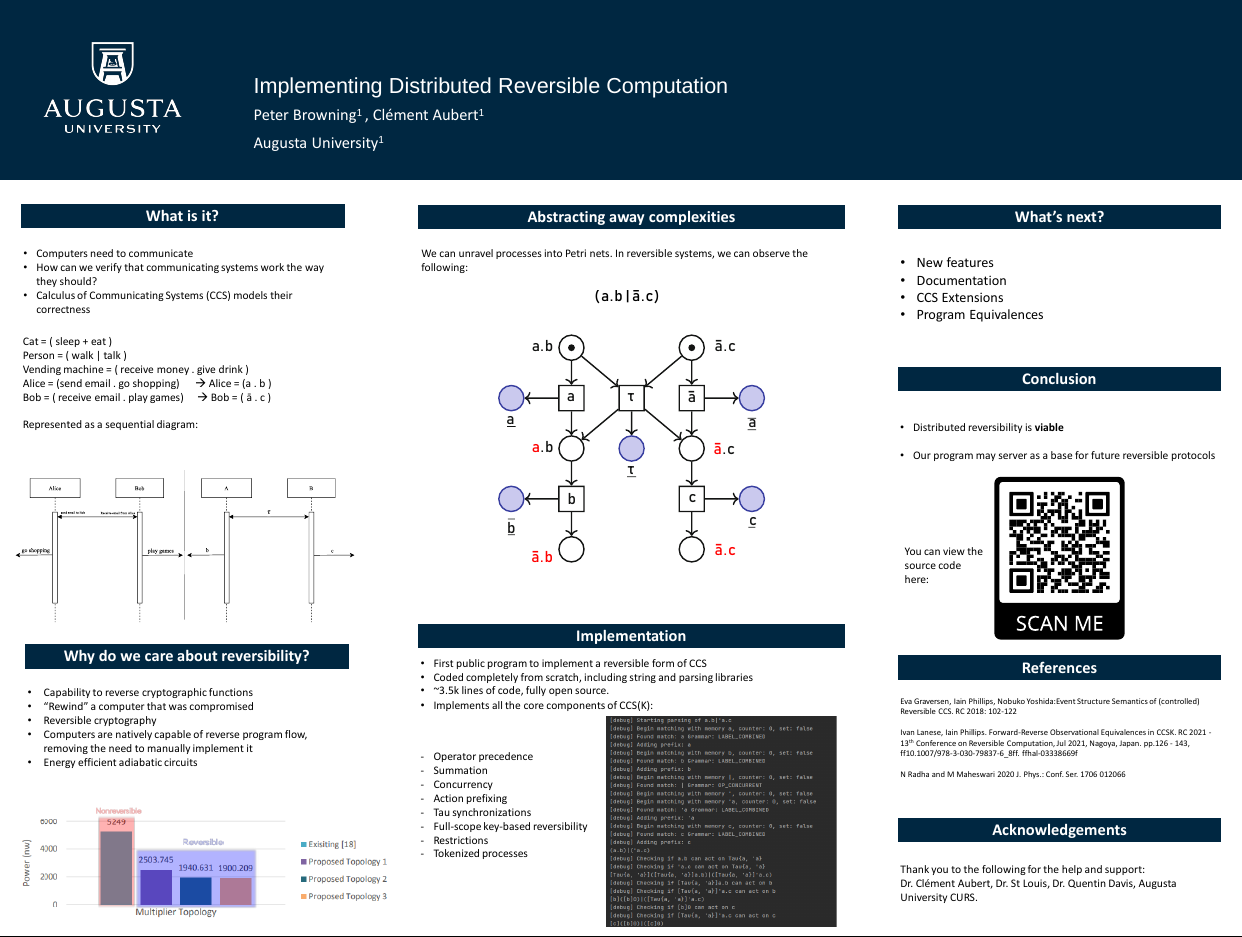[2]
D. Hirschkoff, A full formalisation of pi-calculus theory in the calculus of constructions, in: E.L. Gunter, A.P. Felty (Eds.), Springer, 1997: pp. 153–169. https://doi.org/
10.1007/BFb0028392.
[3]
J. Despeyroux, A higher-order specification of the pi-calculus, in: J. van Leeuwen, O. Watanabe, M. Hagiya, P.D. Mosses, T. Ito (Eds.), Theoretical Computer Science, Exploring New Frontiers of Theoretical Informatics, International Conference
IFIP TCS 2000, Sendai, Japan, August 17-19, 2000, Proceedings, Springer, 2000: pp. 425–439. https://doi.org/
10.1007/3-540-44929-9_30.
[5]
P. Maksimovic, A. Schmitt, HOCore in coq, in: C. Urban, X. Zhang (Eds.), Interactive Theorem Proving - 6th International Conference,
ITP 2015, Nanjing, China, August 24-27, 2015, Proceedings, Springer, 2015: pp. 278–293. https://doi.org/
10.1007/978-3-319-22102-1_19.
[6]
R. Affeldt, N. Kobayashi, A coq library for verification of concurrent programs, Electronic Notes in Theoretical Computer Science 199 (2008) 17–32. https://doi.org/
10.1016/j.entcs.2007.11.010.
[7]
B. Blanchet, Modeling and verifying security protocols with the applied pi calculus and ProVerif, Foundations and Trends in Privacy and Security 1 (2016) 1–135. https://doi.org/
10.1561/3300000004.
[8]
M. Abadi, B. Blanchet, C. Fournet, The applied pi calculus: Mobile values, new names, and secure communication, Journal of the ACM 65 (2018) 1:1–1:41. https://doi.org/
10.1145/3127586.
[9]
M.D. Ryan, B. Smyth, Applied pi calculus, in: V. Cortier, S. Kremer (Eds.), Formal Models and Techniques for Analyzing Security Protocols,
IOS Press, 2011: pp. 112–142. https://doi.org/
10.3233/978-1-60750-714-7-112.
[10]
V. Danos, J. Krivine, Reversible communicating systems, in: P. Gardner, N. Yoshida (Eds.), CONCUR 2004 - Concurrency Theory, 15th International Conference, London, UK, August 31 - September 3, 2004, Proceedings, Springer, 2004: pp. 292–307. https://doi.org/
10.1007/978-3-540-28644-8_19.
[11]
I. Phillips, I. Ulidowski, Reversing algebraic process calculi, in: L. Aceto, A. Ingólfsdóttir (Eds.), Foundations of Software Science and Computation Structures, 9th International Conference,
FOSSACS 2006, Held as Part of the Joint European Conferences on Theory and Practice of Software,
ETAPS 2006, Vienna, Austria, March 25-31, 2006, Proceedings, Springer, 2006: pp. 246–260. https://doi.org/
10.1007/11690634_17.
[12]
I. Lanese, D. Medić, C.A. Mezzina, Static versus dynamic reversibility in
CCS, Acta Informatica (2019). https://doi.org/
10.1007/s00236-019-00346-6.
[13]
B. Aman, G. Ciobanu, R. Glück, R. Kaarsgaard, J. Kari, M. Kutrib, I. Lanese, C.A. Mezzina, L. Mikulski, R. Nagarajan, I.C.C. Phillips, G.M. Pinna, L. Prigioniero, I. Ulidowski, G. Vidal, Foundations of reversible computation, in: I. Ulidowski, I. Lanese, U.P. Schultz, C. Ferreira (Eds.), Reversible Computation: Extending Horizons of Computing - Selected Results of the
COST Action
IC1405, Springer, 2020: pp. 1–40. https://doi.org/
10.1007/978-3-030-47361-7_1.
[15]
C. Aubert, D. Medić, Explicit identifiers and contexts in reversible concurrent calculus, in: S. Yamashita, T. Yokoyama (Eds.), Reversible Computation - 13th International Conference,
RC 2021, Virtual Event, July 7-8, 2021, Proceedings, Springer, 2021: pp. 144–162. https://doi.org/
10.1007/978-3-030-79837-6_9.









